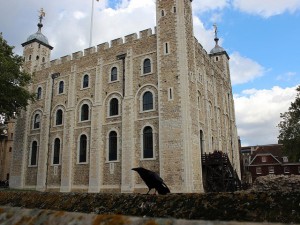 On this day in 1541, A “very sickly” Agnes Tilney, Dowager Duchess of Norfolk, who was imprisoned in the Tower of London after the fall of her granddaughter, Queen Catherine Howard, begged Henry VIII for forgiveness. She also confessed to having another £800 hidden at Norfolk House.
On this day in 1541, A “very sickly” Agnes Tilney, Dowager Duchess of Norfolk, who was imprisoned in the Tower of London after the fall of her granddaughter, Queen Catherine Howard, begged Henry VIII for forgiveness. She also confessed to having another £800 hidden at Norfolk House.
The poor woman must have been terrified, as she surely must have heard that Francis Dereham and Thomas Culpeper had been executed.
You can read all about the Howard family’s horrible Christmas in Marilyn Roberts’ article “Terror for the Howards at Christmas”.